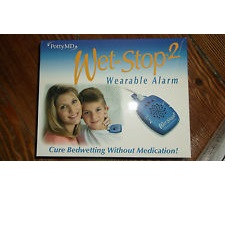
Bedwetting:
Bedwetting occurs when the urge to urinate fails to awaken a person and the bladder is unable to hold back the flow of urine. This spontaneous urination during sleep is called, in medical terms, enuresis. It is most common in children who have achieved bladder control during the day, but continue to wet the bed at night. Most children outgrow bedwetting at the age of 5 or 6, although in some it persists into adolescence and even adulthood. In young children, bedwetting is usually due to late development of night bladder control. Heredity may also play a role in this condition as some studies show that boys who continue to wet past the age of 5 or 7 often have fathers who had the same childhood problem. It is important to recognize that failure to outgrow bedwetting by adolescence may be due to a bladder abnormality, chronic infection, urinary obstruction or a nerve problem. If a child consistently wets the bed after the age of 6, a pediatrician or a pediatric urologist should be consulted. A doctor’s major objective will be to determine whether the problem is due to an underlying disease. Bedwedtting itself is not dangerous, but the cause of the problem may be. Parents should also be aware that childhood bedwetting can lead to emotional problems for the child.
What are some of the things that can be tried to avoid bedwetting:
- Restrict fluid intake before going to bed.
- Have the child empty his or her bladder before going to bed.
- Bedwetting alarms have been proven to effectively train a child for nighttime wetting.
